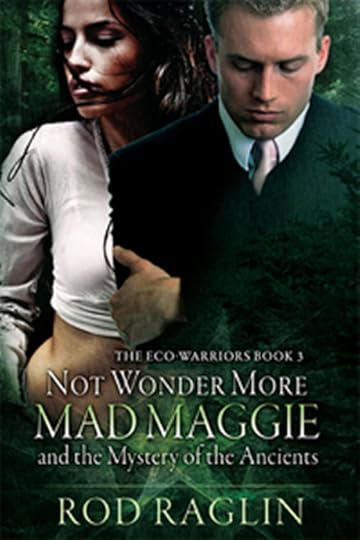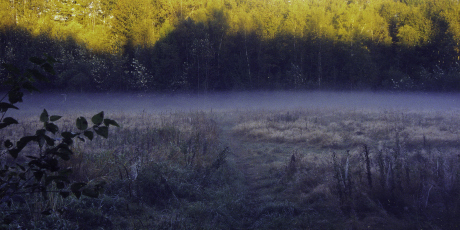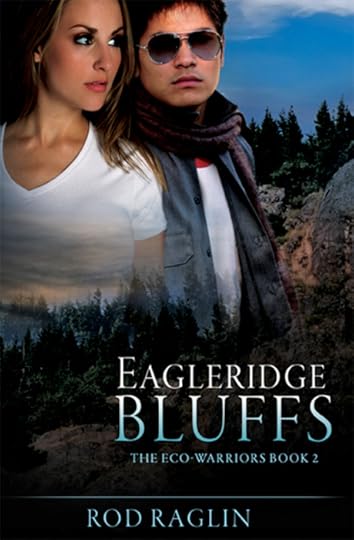Rod Raglin's Blog, page 43
June 26, 2014
Free book giveaway update – fool me once…
 This time I’m giving away 50 copies of Not Wonder More – Mad Maggie and the Mystery of the Ancients on BookLikes. On this site you don’t have to pay to give away your books. Fool me once…
This time I’m giving away 50 copies of Not Wonder More – Mad Maggie and the Mystery of the Ancients on BookLikes. On this site you don’t have to pay to give away your books. Fool me once…
If you want me to send you NWM you must first sign up at BookLikes at http://booklikes.com. It’s simple and free and kind of a nifty site.
Once you’re a member, locate the “giveaways” menu, scroll down and find my book (see cover image – same here as on BookLikes). Hit “enter to win” and click “I want this book”. Depending on the demand you may or may not get the book. The administrator on the site decides. But by the looks of it now, you’ll get one.
Or, once you’ve registered log in at http://booklikes.com/giveaways
I’m giving away 50 copies – at the time of this blog about 30 left are left. The offer ends June 30, 2014
This is free, no conditions. However, an honest review or even a rating on Amazon, Barnes and Noble, Goodreads, etc. would be much appreciated. Here’s some links to simplify things.
http://www.barnesandnoble.com/s/Rod-Raglin?store=allproducts&keyword=Rod+Raglin
http://www.amazon.com/Rod-Raglin/e/B003DS6LEU
https://www.goodreads.com/search?utf8=✓&query=rod+raglin
If you don’t get around to it, it’s not the end of the world. I’ll keep you posted on how it all works out. Not spectacular I’m thinking.
What the hell, I had fun writing it.
Visit my publisher’s website for excerpts from, and buy links to, my three novels, Spirit Bear, Eagleridge Bluffs, and Not Wonder More – Mad Maggie and the Mystery of the Ancients.
SPECIAL OFFER – 3 Book ECO-WARRIORS SERIES – ONLY $8.99
Read my current work(s) in progress at
More of my original photographs can be viewed, purchased, and shipped to you as GREETING CARDS; matted, laminated, mounted, framed, or canvas PRINTS; and POSTERS. Go to: http://www.redbubble.com/people/rodraglin
View my flickr photostream at https://www.flickr.com/photos/78791029@N04/
Or, My YouTube channel if you prefer photo videos accompanied by classical music
https://www.youtube.com/channel/UCsQVBxJZ7eXkvZmxCm2wRYA


June 12, 2014
Story Cartel – paying to give away your books
 You spend two years honing a manuscript to publishing-perfect and then you have to pay someone to give it away free. And you say you want to be a novelist?
You spend two years honing a manuscript to publishing-perfect and then you have to pay someone to give it away free. And you say you want to be a novelist?
Three months ago I uploaded my novels Not Wonder More – Mad Maggie and the Mystery of the Ancients, Spirit Bear and Eagleridge Bluffs to the Story Cartel site (all relevant links are posted at the end of the blog).
All books on Story Cartel are completely free for readers to download. The hope is a reader will return this gift from the author by leaving an honest review of the book on Amazon, Barnes & Noble, Goodreads, and blogs. The reviews help authors market their books and gives them valuable feedback to improve their writing.
I like this type of concept because you’re judged on the writing not on your ability to sustain artificial on-line relationships. This does not prevent some authors manipulating the process, but that’s not me – ever.
It cost $30 to upload a book, a one time expenditure and not unreasonable. But first I had to convert my Word doc manuscript to e-pub and mobli format. This turned out to be relatively easy with a free program I downloaded called Calibre. Along with the actual book and cover file I provided a log line, book blurb and a bit of a bio.
It took about three weeks before the books went live. Then the covers appeared on the site with a pop-up log-line. More details were available by clicking on the cover. It looked slick. I was guardedly optimistic.
Story Cartel launches last four weeks, three weeks where the book is available on the site and one extra week for readers to leave their reviews.
Story Cartel provides seven launch tips to maximize response:
1. Prepare your audience that your books are going to be free via Story Cartel. Which is odd advice since I don’t have an audience. If I did I wouldn’t be paying to use this site or giving away my books.
2. Share on social media daily. So I put my book on this site and then I have to promote the site so “my audience” will know where to download my book – for free. If I have to do all the marketing I could have offered my books for free from say BookLikes and saved myself $90. Fool me once…
3. Put and announcement on my blog. Ditto my response to points one and two.
4. E-mail my fans. Ditto my response to points one, two and three.
5. Run an ad. It’s not enough I give my books away free, I have to pay for an ad to tell people?
6. Send an email announcing only one day left. I can do that, who do I send it to? Oh yeah, my non-existent audience and fans.
7. Advertise with Story Cartel. For an additional $125 I can get a Newsletter listing, for $225 they’ll do some social media sharing. Okay, now I see where we’re going with this and what I’ve gotten into.
By the end of the giveaway thirty-one people have downloaded fifty-seven copies of my books. During the course of the promotion I sent every one of them a personal email asking them to please post a review. I did the same at the end of the promotion.
In hindsight, my most notable field of vision, it was a mistake to put up all three books at once. I may have had more reviews if I had limited the choice.
I got one response – for Spirit Bear. In a well consider and articulate article, the reviewer trashed the book.
Story Cartel provided me the email of everyone that downloaded my books. I now have a list of thirty-one names, of which only one had the integrity to fulfill the commitment of free book for an honest review. Ironically, she hates my work.
The only positive thing to come out of this experience is the knowledge I gleaned regarding converting a Word manuscript into a digital file. This will come in handy for my next novel, The Big Picture, which will likely be self-publish since no agents or publishers seem to be interested in it.
Will I be offering it free? Initially, yes, but I won’t be adding insult to injury by paying someone to do it for me.
Free – does it equate to no value?
Story Cartel storycartel.com
Calibre calibre-ebook.com/download
BookLikes booklikes.com
Visit my publisher’s website for excerpts from, and buy links to, my three novels, Spirit Bear, Eagleridge Bluffs, and Not Wonder More – Mad Maggie and the Mystery of the Ancients.
Read my current work(s) in progress at
http://www.wattpad.com/story/10733158-forest-primeval
Read ”Bubble” excerpts of my novels at
http://bublish.com/bubble/view/2872/RodRaglin
http://bublish.com/bubble/view/2873/Rod-Raglin
http://bublish.com/bubble/view/2609/Rod-Raglin
More of my original photographs can be viewed, purchased, and shipped to you as GREETING CARDS; matted, laminated, mounted, framed, or canvas PRINTS; and POSTERS. Go to: http://www.redbubble.com/people/rodraglin
View my flickr photostream at https://www.flickr.com/photos/78791029@N04/
Or, My YouTube channel if you prefer photo videos accompanied by classical music
https://www.youtube.com/channel/UCsQVBxJZ7eXkvZmxCm2wRYA


May 21, 2014
Conflict of interest incomprehensible to the uber-ambitious
 I’m sensitive to conflict of interest.
I’m sensitive to conflict of interest.
Sometimes it’s overt; like an author giving his own book five stars. Most times it’s more subtle.
Here’s and example of what I mean. I’m registered with an online site that lists agents and publishers and helps writers keep track of queries they send out. At least a couple times a week I get an email with updates, publishing news tips and links to relevant sites and articles.
Here’s what I received recently:
“Pinterest is a great tool to promote your books. Here are eight tips for writers on how to use it.” A link is supplied with this recommendation.
This link is to a website of a “social media manger” and the author of three related books, all self-published.
I was hoping to get some ideas from writers like myself. Something they tried that worked or wasted their time, in other words, an opinion from an objective third party.
Instead, I get advice right from the pages of the most recent book this person is trying to flog.
How likely is she to be objective about techniques she’s promoting in her book? Therein lies the conflict of interest.
Conflict of interest is a concept that seems to be incomprehensible to these constant pitchmen. They consider it passé, akin to chivalrous practices like standing when a woman enters the room, walking on the street side when accompanying a lady, opening doors, offering seats, or just plain being courteous.
Like multi-level marketing zealots, they use every occasion as an opportunity to sell. Good manners are an impediment and modesty and humility are seen as signs of weakness.
The uber-ambitious are totally self-absorbed, either myopic or suffer from tunnel vision or both, and are continually pitching some form of self-aggrandizement.
Unfortunately, this abhorrent personality type is on the increase spawned by obnoxious behavior on reality television and “Hey, look at me!” social media promotion. Indeed, in some circles they are even considered chic and trendy.
For me, I find full frontal, unabashed ambition at the best unappealing, and at the worst outright repugnant. Not surprising, it has the exact opposite effect on me as what is intended.
The same goes for conflict of interest. If I catch a whiff of it, credibility is compromised.
So how does a writer succeed without being obnoxiously ambitious and chronically comprising their credibility?
Maybe try to write something that, without promise of profit or pain, other people recommend.
~ ~ ~
Comments and criticisms appreciated but not likely reciprocated.
For a limited time read all my novels free for an honest review.
Visit my publisher’s website for excerpts from, and buy links to, my three novels, Spirit Bear, Eagleridge Bluffs, and Not Wonder More – Mad Maggie and the Mystery of the Ancients.
I blog about “Writing – the experience” at
http://rodraglin.wordpress.com/
Read my current work(s) in progress at
Read ”Bubble” excerpts of my novels at
http://bublish.com/author/view/3307
http://bublish.com/bubble/add/1637#
More of my original photographs can be viewed, purchased, and shipped to you as GREETING CARDS; matted, laminated, mounted, framed, or canvas PRINTS; and POSTERS. Go to: http://www.redbubble.com/people/rodraglin
View my flickr photostream at https://www.flickr.com/photos/78791029@N04/
Or, if you prefer photo videos accompanied by classical music
Flower with attitude at http://youtu.be/ICrt4eY-rx8
Pacific Coast Sunsets at http://youtu.be/BxSTGuNh_gY


May 9, 2014
Read my books, Spirit Bear, Eagleridge Bluffs and Not Wonder More, free
 Read my books, Not Wonder More, Eagleridge Bluffs and Spirit Bear for free!
Read my books, Not Wonder More, Eagleridge Bluffs and Spirit Bear for free!
For a limited time you can download and read any one, or all three of my novels in the ECO-WARRIOR SERIES free. They include Spirit Bear, Eagleridge Bluffs and Not Wonder More-Mad Maggie and the Mystery of the Ancients.
All you need to do is go to storycartel.com and register. Books are free in exchange for your honest review (see my previous blog for more information). This offer is available for about a month.
If you follow this blog here’s your chance to see if I can actually write or are my rants just sour grapes. Am I a cynical, bitter, nasty, no-talent guy with a giant chip on his shoulder taking cheap shots, or am I an undiscovered literary genius?
It’s likely somewhere in between, well maybe more of the former, but hey, you can decide for yourself, and for free.
Maybe I trashed your book in a review. Here’s your chance to get back at me. Read my books and if you honestly think they’re crap, don’t hold back. A bad review is better than no review (hmm…I’ll get back to you on that).
As you read this, Spirit Bear, Eagleridge Bluffs and Not Wonder More are available now and can be downloaded free.
You have my word the reader reviews you see for my books on Amazon, Goodreads and Barnes and Noble will not be manipulated, paid for, or fraudulent in any way. Frankly, it’s just too much effort for too little gain, and besides what would be the point? You can fool all of the people some of the time, and some of the people all of the time, but how long can you go on fooling yourself?
Have I been fooling myself?
You tell me.
~ ~ ~
I’m not a very friendly person.
If we attended the same party you’d see standing alone at the edge of an animated group, not contributing. If you thought I looked like I wished I could be someplace else, you’d probably be right.
But being a misanthrope doesn’t mean I don’t appreciate and value comments and criticisms of my work. Insightful comments from strangers have taught me more about writing and photography than anything else.
So please comment and criticize if you wish.
Just don’t expect it to be the beginning of an online relationship.
R
Visit my publisher’s website for excerpts from, and buy links to, my three novels, Spirit Bear, Eagleridge Bluffs, and Not Wonder More – Mad Maggie and the Mystery of the Ancients.
Read my current work(s) in progress at
Read ”Bubble” excerpts of my novels at
http://bublish.com/author/view/3307
More of my original photographs can be viewed, purchased, and shipped to you as GREETING CARDS; matted, laminated, mounted, framed, or canvas PRINTS; and POSTERS. Go to: http://www.redbubble.com/people/rodraglin
View my flickr photostream at https://www.flickr.com/photos/78791029@N04/
Or, if you prefer photo videos accompanied by classical music
Flowers with Attitude at http://youtu.be/ICrt4eY-rx8
Pacific Coast Sunsets at http://youtu.be/BxSTGuNh_gY


May 4, 2014
Fraudulent book reviews impugn authors’ integrity
 Recently I received a book free from Story Cartel http://www.storycartel.com/ in exchange for an honest and impartial review.
Recently I received a book free from Story Cartel http://www.storycartel.com/ in exchange for an honest and impartial review.
If you register with Story Cartel you can download free books. The only requirement is that you write an honest review and post it on Goodreads, Amazon, B&N and maybe your blog. If you’re not registered with all these sites than you can just post on the ones you’re familiar with. You’ve got four weeks to post your review – they even send you prompts. No one comes after you if you fail to post.
Your reviews help authors market their books and gives them valuable feedback to improve their writing.
Are customer reviews important? You bet they are.
Customer reviews of books, no matter how unprofessional, help sell books.
BookBub http://www.bookbu.com/ , a daily deal site for e-books that helps lesser known authors build a fan base by giving a away deeply discounted e-books, says the following about customer reviews:
If one thing is certain from the results we’ve seen, it’s that customer reviews can help sell eBooks. We’ve consistently found that mentioning reader reviews in a BookBub blurb results in better response rates. In one test, including the phrase “over 200 five-star Amazon reviews” drove over 20 percent more clicks than a version of the blurb that did not mention reviews.
Which brings us to Amazon http://www.amazon.com/ , a company that captures nearly a third of every dollar spent on purchasing books. It values reviews more than other online booksellers featuring them prominently.
If you think that might make unscrupulous authors try to find ways of garnering lots five star reviews for books that are dreck, well, you’d be right, and they’ve been doing it.
The easiest is guilting friends and family into submitting one paragraph reviews (probably written by the author) and ticking the five star box, likely without even reading the book. Authors give away books for positive reviews, swap positive reviews with other authors, even pay professional reviewers, go to http://www.fiverr.com/ , to write and post five star reviews.
So how do you sort out the fraudulent reviews from the legitimate ones?
That’s what Amazon is wondering.
After several well-publicized cases involving writers buying or manipulating their reviews, Amazon appears to be cracking down on what appear to be fraudulent reviews. Though the shopping site has not said how many reviews it’s deleted, writers say thousands have disappeared in recent months.
Sorting the legitimate from the illegitimate reviews seems an impossible task, After all, who can account for someone’s taste?
Back to the book I got for free from Story Cartel in exchange for an honest and impartial review.
This novel is a mess. The plot glitches are more entertaining than the plot and the characters are one dimensional and unmotivated. I generously gave it two stars, the equivalent to “I don’t like it.”
It so far has garnered eleven reviews on Amazon, five of which are five stars.
One five star reviewer called it “Thrilling, tightly written, gripping”, another said it was an “Impressive debut novel”. Both of these reviews were one paragraph. Click on “see all my reviews” and there aren’t any others.
There were five reviews from Story Cartel members. Their average rating was 2.8 stars, or almost “it’s okay”. Factor in the other reviews, which include four five-star ratings and a one-line four-star review (also no other reviews posted) and the average becomes 3.6 or almost “I like it”.
The suspect reviews bump the novel rating by twenty percent.
If you’re a writer who will not impugn their integrity by participating in this online chicanery then you’re pretty much screwed. Legitimate reader reviews are far and few between and they are seldom five stars.
If you’re a reader looking for the truth about a book you’re considering purchasing, I suggest you read reviews in newspapers and magazines. Or, if you find it more convenient to read Amazon reviews, skip the five star ones and read the negative reviews – three stars or less. There are usually more in depth and give you a better understanding of the novel – you have the sense the reviewer actually read the book. They are more unbiased because in most cases the reviewer will attempt to justify his criticisms.
They are almost always better written and more entertaining.
Fraudulent reviews, manipulated best-seller lists, all for a few bucks and a little fame. Is this the way the game has to be played?
I think not.
“Character is that which can do without success.”
- Ralph Waldo Emerson
~ ~ ~
I’m not a very friendly person.
If we attended the same party you’d see standing alone at the edge of an animated group, not contributing. If you thought I looked like I wished I could be someplace else, you’d probably be right.
But being a misanthrope doesn’t mean I don’t appreciate and value comments and criticisms of my work. Insightful comments from strangers have taught me more about writing and photography than anything else.
So please comment and criticize if you wish.
Just don’t expect it to be the beginning of an online relationship.
R
Visit my publisher’s website for excerpts from, and buy links to, my three novels, Spirit Bear, Eagleridge Bluffs, and Not Wonder More – Mad Maggie and the Mystery of the Ancients.
Read my current work(s) in progress at
Read ”Bubble” excerpts of my novels at
http://bublish.com/author/view/3307
More of my original photographs can be viewed, purchased, and shipped to you as GREETING CARDS; matted, laminated, mounted, framed, or canvas PRINTS; and POSTERS. Go to: http://www.redbubble.com/people/rodraglin
View my flickr photostream at https://www.flickr.com/photos/78791029@N04/
Or, if you prefer photo videos accompanied by classical music
Flower with attitude at http://youtu.be/ICrt4eY-rx8
Pacific Coast Sunsets at http://youtu.be/BxSTGuNh_gY


April 30, 2014
“Horse Hunts” heavy on details, light on charactization
 Horse Hunts, A Smoke Tree Mystery Series Novella by Gary J. George is heavy on plot and details, many repetitive and extraneous, but very light on characterization.
Horse Hunts, A Smoke Tree Mystery Series Novella by Gary J. George is heavy on plot and details, many repetitive and extraneous, but very light on characterization.
The story starts off immediately with the initiating incident which is encouraging. A agricultural inspection officer is shot in Vidal Junction, near the California/Arizona state line, when he asks to inspect the contents of a driver’s trunk. The assailant then flees driving on Highway 95 until his car breaks down, which he abandons and walks into the desert.
The protagonist, Lieutenant Carlos Caballo, aka “Horse”, the commander of the Smoke Tree substation of the San Bernardino County Sheriff’s department, gets the call to investigate. In the trunk of the abandoned car he finds the body of a dead woman, who turns out to be the driver’s wife.
Good premise and established quickly.
The story is realistically portrayed and the police procedure credible. There are some nice descriptive passages about the desert landscape and interesting insights into “man tracking” as Horse leads his deputies into the wilderness after the suspect.
Tracking, however, is not very exciting action and a little goes a long way, and there’s a lot about tracking.
The novella really begins to unravel when it switches into the point of view of the suspect, Harvey Vickers. The character is clichéd and one-dimensional. He appears almost a to be a person of diminished mental capacity. Once in the desert though, Vickers becomes very astute in attempting to conceal his trail. The reader wonders where the moron learned this stuff.
There’s a huge chunk of unmotivated backstory about Vicker’s childhood (none about desert survival though), which again is clichéd and one-dimensional. A better writer could have used this info dump to develop the antagonist’s character, but as it is it just slows the narrative.
Despite the many hours together in the wilderness tracking a desperado, you never get a sense of a relationship between Horse and his younger deputies. The extent of the relationship with his wife is equally shallow, with Horse describing himself as “lucky to have the love of this good woman.” With his dead father he all he can remember is “how much he missed that good man, taken from his family so young.”
Half way through this story, the author introduces a new character, Joe Medrano. Joe is a recluse and one of the few surviving members of the Chemehuevi tribe. He really serves no other purpose than to allow the author to expound upon the wrongs perpetrated by the federal government against Indians, and this tribe specifically.
This is actually an interesting bit of history and could have been developed into subplot especially if it was subtly inserted by Joe, instead of pontificated by Horse.
Unfortunately, the way it is presented by George it appears only as author intrusion.
One of the problems throughout the story is over-explaining. It is really apparent near the end when Horse uses military tactic he describes as “fire and movement”. First he explains this tactic to his deputy in detail, than he carries out the tactic explaining again in detail what is transpiring. This need to make sure the reader “gets it” really detracts from the climax of the story.
Reading fiction is an emotional experience, or at least it should be. Emotion is best conveyed through the relationships between characters. George needs to develop his characters so they are three-dimensional and establish real, meaningful relationships between them for his future work to be a fulfilling and entertaining. Character always trumps plot.
This novella suffers from writer inexperience. It lacks depth and feeling. When the George tries for it he fails. For example, this is the passage as Horse and his deputy ride out into the desert after an armed murderer:
And like something created unintentionally, but created nonetheless, they beckoned Horse and Andy, as if there were anything anywhere out there that held the promise of something of use to the two men on horseback moving ahead of the sun.
Anything anywhere out there something?
There’s nothing wrong with this story that ten more years of writing experience won’t fix.
I received this book free from Story Cartel in exchange for a honest and impartial review.
~ ~ ~
I’m not a very friendly person.
If we attended the same party you’d see standing alone at the edge of an animated group, not contributing. If you thought I looked like I wished I could be someplace else, you’d probably be right.
But being a misanthrope doesn’t mean I don’t appreciate and value comments and criticisms of my work. Insightful comments from strangers have taught me more about writing and photography than anything else.
So please comment and criticize if you wish.
Just don’t expect it to be the beginning of an online relationship.
R
Visit my publisher’s website for excerpts from, and buy links to, my three novels, Spirit Bear, Eagleridge Bluffs, and Not Wonder More – Mad Maggie and the Mystery of the Ancients.
I blog at
http://rodraglin.wordpress.com/
Read my current work(s) in progress at
Read ”Bubble” excerpts of my novels at
http://bublish.com/author/view/3307
More of my original photographs can be viewed, purchased, and shipped to you as GREETING CARDS; matted, laminated, mounted, framed, or canvas PRINTS; and POSTERS. Go to: http://www.redbubble.com/people/rodraglin
View my flickr photostream at https://www.flickr.com/photos/78791029@N04/
Or, if you prefer photo videos accompanied by classical musis
Flower with attitude at http://youtu.be/ICrt4eY-rx8
Pacific Coast Sunsets at http://youtu.be/BxSTGuNh_gY


April 20, 2014
55 more ways to delude yourself
 Sell More Books, 55 Free Promotions That Work, by Nancy Hendrickson and Michelle Campbell-Scott is sixty-two pages of promotional techniques designed to help you sell your book using social media and the internet.
Sell More Books, 55 Free Promotions That Work, by Nancy Hendrickson and Michelle Campbell-Scott is sixty-two pages of promotional techniques designed to help you sell your book using social media and the internet.
Since the authors readily admit not all of the 55 promotions will work for every single book or every single author, they’ve divided their strategies into five major categories, “hopefully making it easier for you to find the promotional ideas that work for you and your book.”
The five categories are:
The Big Five – for social media junkies.
The Rock Star – for authors who love being in the limelight, includes YouTube and Podcasts.
The Emily Dickenson – for the shy who love writing more than anything else.
The Best Friend – putting the touch on family and friends
The Wizard – for those very up-to-date on the latest promotional strategies.
Depending on how savvy you are technologically you may find some of these programs complicated in the extreme. You could end up spending a lot of time, and I mean a considerable amount, for very limited results.
The obvious flaw with self-promotion, and this applies to a number of the authors’ suggestions, is most of these schemes lack credibility. Creating your own YouTube video talking about your book, arranging a friend to interview you with, no doubt, scripted questions, bogus author review swaps (you plug mine and I’ll plug yours), and begging family and friends to submit positive reviews, and let’s face it, how likely are they to post an objective one, do not advance your goal of being a better writer.
Oh, but that’s not your goal, you just want to sell 55 more books?
Well, then of course, you’ll want to spend all the time it takes to keep current with your new virtual friends, tribe members and online acquaintances instead of writing another, hopefully better, book.
Sell More Book, 55 Free Promotions That Work is certainly worth the price even if you get a couple of new, legitimate ideas. It’s apparent from the author’s bios that the focus of this book is mainly at writers of non-fiction where the strategies would likely work better than promoting works of fiction.
Regardless, you’ll be disappointed if you think taking the time to employ these techniques will make you significantly more successful.
You can fool some of the people all of the time, and all of the people some of the time, but the question is, how long can you continue to keep fooling yourself?
I received this book free from Story Cartel in return for an honest, impartial review. More on Story Cartel in an upcoming blog. Check it out at storycartel.com
Visit my publisher’s website for excerpts from, and buy links to, my three novels, Spirit Bear, Eagleridge Bluffs, and Not Wonder More – Mad Maggie and the Mystery of the Ancients.
Read my current work(s) in progress at
More of my original photographs can be viewed, purchased, and shipped to you as GREETING CARDS; matted, laminated, mounted, framed, or canvas PRINTS; and POSTERS. Go to: http://www.redbubble.com/people/rodraglin
Visit my flickr photostream at
http://www.flickr.com/photos/78791029@N04/


March 29, 2014
Author possessed
 It’s electrifying, fascinating, magical and, above all else, the reason I write.
It’s electrifying, fascinating, magical and, above all else, the reason I write.
The characters in my current novel have come to life. I am now only the conduit for their emotions, thoughts and actions. They are doing and saying things I never imagined they would and yet I know it’s right for them, for me, for the story.
The story? I’m on an adventure. Maps have been abandoned. I don’t know where I’m going or how to get back. Places are being rediscovered, events revisited, emotions resurrected. I am boldly going where I’ve been before and never knew it.
I’m frequently afraid.
There’s no hesitation, no reviewing, no referring to a plot outline. I sit down and they compete to be expressed. They now are constantly with me. When I’m not writing they interrupt my dreams, my conversations, anything I attempt to get done.
I am possessed.
I prefer their company over anyone elses. It’s like the first bloom of love, I can’t wait to get back to them, and hate the time we’re apart. Leaving them is tortuous, even if just to sleep.
This can’t last. The intensity is exhausting. Like any infatuation the passion will wane. But for now it consumes me and I feel sympathy for those whom have never experienced this.
I know there will be bleak days ahead when I’ll look at the plot and see it as contrived, examine the characters and find them shallow.
But even during those times when everything is tested and found lacking, when the entire work appears flawed beyond repair, stupid, dumb and I’m sick, sick, sick of it, I’ll still remember these moments and remind myself for a brief time I was a writer.
Or thought I was.
~ ~ ~
Read my current work(s) in progress, including Forest Primeval, the work mentioned here, at
Visit my publisher’s website for excerpts from, and buy links to, my three novels, Spirit Bear, Eagleridge Bluffs, and Not Wonder More – Mad Maggie and the Mystery of the Ancients.
More of my original photographs can be viewed, purchased, and shipped to you as GREETING CARDS; matted, laminated, mounted, framed, or canvas PRINTS; and POSTERS. Go to: http://www.redbubble.com/people/rodraglin


March 24, 2014
Erotica and buying your way onto a Best-Seller list
 If anybody is actually reading this, and not just clicking on it because you’ve been told that pretending to follow blogs will help build “your platform”, be forewarned – it’s yet another rant (and no, I won’t read your blog).
If anybody is actually reading this, and not just clicking on it because you’ve been told that pretending to follow blogs will help build “your platform”, be forewarned – it’s yet another rant (and no, I won’t read your blog).
The author members of my publisher’s Yahoo group were recently all indignant about a story in The Wall Street Journal by Jeffrey A. Trachtenberg, entitled The Mystery of the Book Sales Spike, with the subhead; How Are Some Authors Landing On Best-Sellers Lists? They’re Buying Their Way.
The story details how for clients willing to pay enough, there’s a San Diego-based marketing consultancy that will guarantee a spot on The Wall Street Journal’s best-seller list. It does this by taking bulk sales and breaking them up into more organic-looking individual purchases, defeating safeguards that are supposed to make it impossible to “buy” bestseller status.
Soren Kaplan, a business consultant and speaker, hired ResultSource to promote his book “Leapfrogging.” Here’s how Kaplan breaks out the economics of making the list.
With a $27.95 list price, I was told that the cost of each book would total about $23.50 after various retail discounts and including $3.99 for tax, handling and shipping. To ensure a spot on The Wall Street Journal’s bestseller list, I needed to obtain commitments from my clients for a minimum of 3000 books at about $23.50, a total of about $70,500. I would need to multiply these numbers by a factor of about three to hit The New York Times list.
So it would’ve cost more than $211,000 to get on the New York Times bestselling list and that’s before ResultSource’s fee, which is typically more than $20,000. Kaplan reached that pre-sale figure of 3,000 by securing commitments from corporate clients, who agreed to buy copies as part of his speaking fees – he discounted his fees to include the book price, and by buying copies for himself to resell at public appearances.
After the first week on the best-sellers list, sales of Kaplan’s book dropped 99% to less than one hundred a week. Other authors have employed the same methods only to have their books drop off the radar in the second week with more returns than sales.
In actual fact, this article referred to business books and not fiction, which would need bigger numbers to top the best-seller lists.
The response from the author’s group was one of moral indignation as if their books were superior but they would never stoop to such methods even if they had two hundred grand and three thousand friends to send their books to.
Of course, the bogus review swaps and all other manner of manipulating postings on Amazon and Goodreads that they participate in are totally beyond reproach.
But really, are they serious? Most books on my publisher’s site and any e-publishing site for that matter are erotica (porn with a plot but not much of one) for every sexual persuasion and ones you might not even be aware of. Then there’s a category that includes demons, dragons, elves, and fairy tales for adults; and, of course lots of werewolves, vampires, shapeshifters and so on. Many don’t exceed one hundred pages and can hardly be called books.
Can’t imagine many best-sellers amongst these but what the hell, go ahead and mortgage the family home and take a shot at it.
If you’re writing for fame and fortune you’re likely going to be bitter, frustrated, disappointed and broke. Hmm… sounds like me.
Instead, write for the experience of writing. For the adventure your story takes you on as well as all those unexpected, and yes, enlightening things your characters tell you.
Write for the satisfaction of a finely crafted scene, the thrill of le mots justes – finding exactly the right word or phrase, the sense of purpose that comes from creating something that never was before.
Write for self-discovery, to make sense of the world.
Write to make the world a better place.
Find your voice, be authentic, make writing your ‘one true thing’. Don’t sully it with gimmicks, social media chicanery or other frauds to gain those few moments of tarnished fame.
As Emerson said; ‘A little integrity is better than any career.’
If you’re lucky enough to make some money and gain some notoriety, well, that’s not a bad thing.
~ ~ ~
Visit my publisher’s website (Yes, it’s the same one with erotica on it!) for excerpts from, and buy links to, my three novels, Spirit Bear, Eagleridge Bluffs, and Not Wonder More – Mad Maggie and the Mystery of the Ancients.
Read my current work(s) in progress at
More of my original photographs can be viewed, purchased, and shipped to you as GREETING CARDS; matted, laminated, mounted, framed, or canvas PRINTS; and POSTERS. Go to: http://www.redbubble.com/people/rodraglin


March 19, 2014
The Half-Known World – a review
 Robert Boswell’s, The Half-Known World – On Writing Fiction, is yet another book written by an instructor of a Creative Writing Program likely under the threat of publish or perish.
Robert Boswell’s, The Half-Known World – On Writing Fiction, is yet another book written by an instructor of a Creative Writing Program likely under the threat of publish or perish.
Boswell’s got some interesting concepts and he delivers them in a self-deprecating voice which is refreshing coming from an academic. One gets the impression that writing likely saved Boswell, who unabashedly admits he failed at just about everything else he tried.
Two things were gleaned from this thin book. One was the use of “narrative spandrels” in fiction.
A spandrel is a byproduct of the evolution of some other characteristic, rather than a direct result of it. Boswell suggests we be on the lookout for these opportunities to help mutate our stories into something better. These devices, perhaps a physical object, or maybe an idiosyncrasy, can be an at-the–moment event, but then go on to service the larger function of the story.
They can be an effective “ticking symbol” but he warns they must be spontaneous, even unconscious and not obvious “plants”.
In my latest novel, The Big Picture, my protagonist wears a cheap watch with a dead battery. Every time she looks at it, forgetting that it doesn’t work, it symbolizes how broke she is, how reluctant she is to be ruled be the clock, and how insignificant these types of personal belongings are to her. When it appeared on her arm I had no idea the significant role it would play.
The other advice that was worthwhile was Boswell’s conviction that if you’re going to write politics into your fiction you must do it from the point of view of the antagonist, the aggressor. This way you can fully explore both sides of the argument and, if you insist on the truth, avoid the work becoming clichéd propaganda in favor of the victim – your protagonist.
Boswell suggests that exploring political issues is important work for writers. “Writers cannot pretend to be helpless,” he says.
Helpless, no. Impotent, probably.
~ ~ ~
Visit my publisher’s website for excerpts from, and buy links to, my three novels, Spirit Bear, Eagleridge Bluffs, and Not Wonder More – Mad Maggie and the Mystery of the Ancients.
I blog at
http://rodraglin.wordpress.com/
Read my current work(s) in progress at
More of my original photographs can be viewed, purchased, and shipped to you as GREETING CARDS; matted, laminated, mounted, framed, or canvas PRINTS; and POSTERS. Go to: http://www.redbubble.com/people/rodraglin





